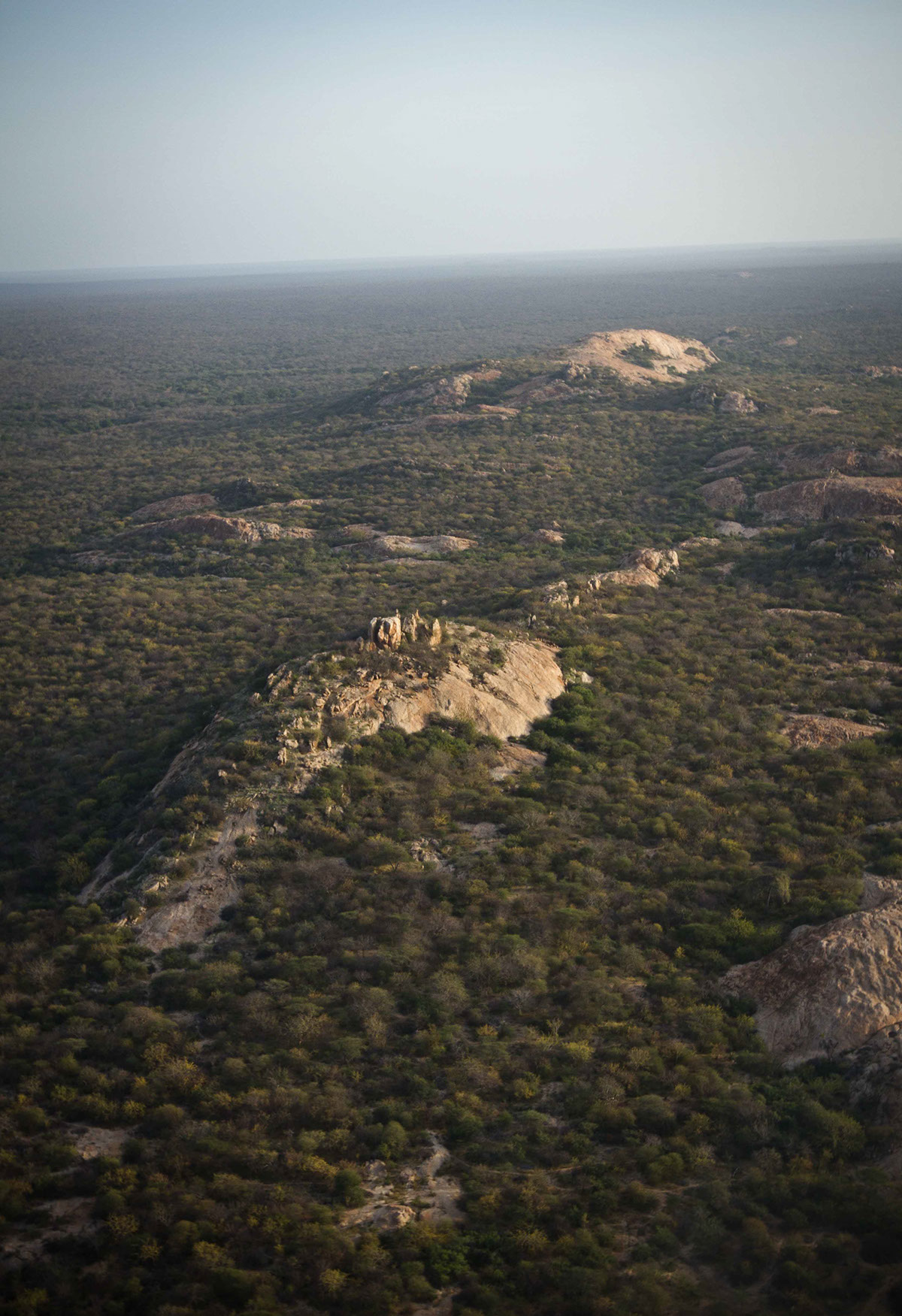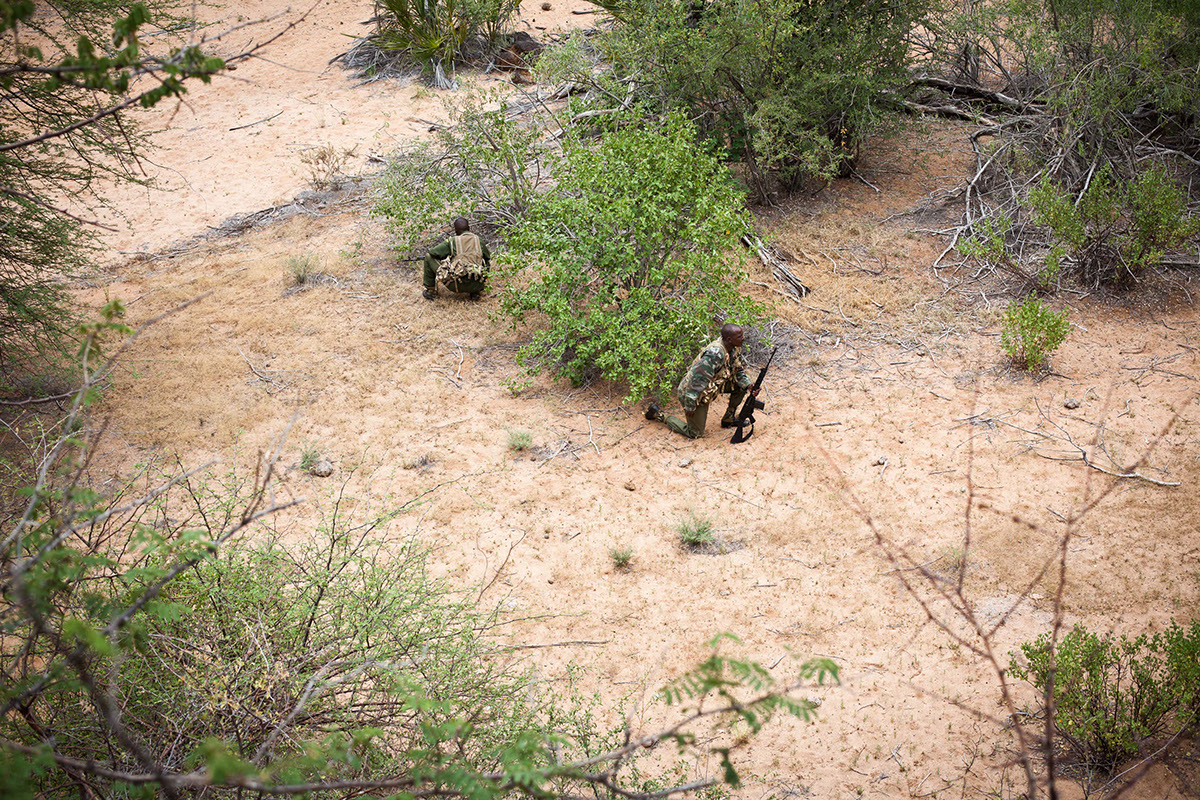The number of elephant killings for ivory has risen dramatically throughout the African continent in recent months. I went out in search of answers as to why this is happening and what is being done to try and control this situation, visiting Kora National Park in Kenya
The primary reason for the escalation in elephant killings has been attributed to growing demand from the Far East for an illegal trade in ivory. China’s growing presence in Africa and its interest in the continent’s natural resources seems to also have incited a reprise of the devastating poaching culture of twenty years ago. A recent report found that the number of ivory items on sale in key centres in southern China has more than doubled since 2004, with most traded illegally. Armed groups, including the Lord’s Resistance Army, the Shabab and Darfur’s janjaweed, are said to be hunting down elephants and using the tusks to buy weapons. Corrupt crime groups are linking up with them to move the ivory around the world, mostly from sub-Saharan Africa to China, law enforcement officials say.
Kenya’s parks and national reserves are seeing the numbers of elephants decline at a rate more rapid than they have seen over the last three decades. Nomadic pastoralists are entering reserves and parks in search of grazing grounds for their livestock, yet some believe they are also informing poachers about elephant movements, safe in the knowledge that they cannot be arrested if they are present in the reserve without weapons. The biggest penalty these pastoralists could face is to be moved out of the park, however it is far too easy for them to return and settle again. Their presence is threatening the natural habitat of other animals too, as in defence pastoralists will often kill animals that they encounter in the parks.
The communities who live on these reserves also play an important role in determining elephant numbers. Elephants are sometimes considered a threat by these communities as land demarcation is unclear in some regions and elephants will leave their `safe´ havens to graze other areas, usually crops belonging to local farmers who have only recently started to grow after foreign aid started programs in these areas, causing for one more point of conflict between man and animal. Destroyed crops and the occasional but rare deaths of local villagers by elephants means that many communities do not wish to help stop the poaching that occurs. Thus elephants live in a state of constant fear and threat.
It is clear that the demand for ivory is higher than the actual number of elephants left. It is very important that the demand for their tusks drops; otherwise we will be in danger of losing Kenya’s elephants completely. It is widely acknowledged that the penalties on poachers are too small; offenders receive just a 9-month prison sentence for the killing of an elephant, and those found with ivory are merely fined and sent on their way. Governments, conservation trusts and individuals have to rally together in defence of elephants before anything can be done to stop ivory poaching once and for all.
This is however being addressed by some well-trained Kenya Wildlife Service (KWS) anti-poaching squads, who operate in most of Kenya´s game reserves. These dedicated men and women patrol the grounds constantly, to ensure the safety and habitats of the elephants are upheld. It is very hard to monitor the movements of poachers and more often than not only the elephant carcasses are found. These days, expert poachers are heavily armed with AK 47´s, machetes, axes and even sometimes night vision goggles, with many said to be part of the Somali militant Al-Shabab group. KWS are weighing their options, but it seems like fencing Kora National Park is the only solution for the survival of the elephants and other animals left within it´s boundary.
The true reality is the desperate need for more resources to be put into conservation and for the matter of poaching to be taken very seriously before it is too late. Now is the time to act, together, once and for all. If elephant killings continue at this pace, we will soon witness the end of the wild elephant in Kenya and the African Continent.
The communities who live on these reserves also play an important role in determining elephant numbers. Elephants are sometimes considered a threat by these communities as land demarcation is unclear in some regions and elephants will leave their `safe´ havens to graze other areas, usually crops belonging to local farmers who have only recently started to grow after foreign aid started programs in these areas, causing for one more point of conflict between man and animal. Destroyed crops and the occasional but rare deaths of local villagers by elephants means that many communities do not wish to help stop the poaching that occurs. Thus elephants live in a state of constant fear and threat.
It is clear that the demand for ivory is higher than the actual number of elephants left. It is very important that the demand for their tusks drops; otherwise we will be in danger of losing Kenya’s elephants completely. It is widely acknowledged that the penalties on poachers are too small; offenders receive just a 9-month prison sentence for the killing of an elephant, and those found with ivory are merely fined and sent on their way. Governments, conservation trusts and individuals have to rally together in defence of elephants before anything can be done to stop ivory poaching once and for all.
This is however being addressed by some well-trained Kenya Wildlife Service (KWS) anti-poaching squads, who operate in most of Kenya´s game reserves. These dedicated men and women patrol the grounds constantly, to ensure the safety and habitats of the elephants are upheld. It is very hard to monitor the movements of poachers and more often than not only the elephant carcasses are found. These days, expert poachers are heavily armed with AK 47´s, machetes, axes and even sometimes night vision goggles, with many said to be part of the Somali militant Al-Shabab group. KWS are weighing their options, but it seems like fencing Kora National Park is the only solution for the survival of the elephants and other animals left within it´s boundary.
The true reality is the desperate need for more resources to be put into conservation and for the matter of poaching to be taken very seriously before it is too late. Now is the time to act, together, once and for all. If elephant killings continue at this pace, we will soon witness the end of the wild elephant in Kenya and the African Continent.

















